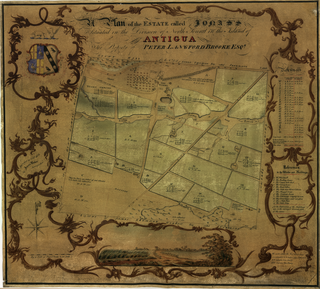A mortgage is a legal instrument of the common law which is used to create a security interest in real property held by a lender as a security for a debt, usually a mortgage loan. Hypothec is the corresponding term in civil law jurisdictions, albeit with a wider sense, as it also covers non-possessory lien.

Foreclosure is a legal process in which a lender attempts to recover the balance of a loan from a borrower who has stopped making payments to the lender by forcing the sale of the asset used as the collateral for the loan.

Ultra vires is a Latin phrase used in law to describe an act which requires legal authority but is done without it. Its opposite, an act done under proper authority, is intra vires. Acts that are intra vires may equivalently be termed "valid", and those that are ultra vires termed "invalid".

In finance, a security interest is a legal right granted by a debtor to a creditor over the debtor's property which enables the creditor to have recourse to the property if the debtor defaults in making payment or otherwise performing the secured obligations. One of the most common examples of a security interest is a mortgage: a person borrows money from the bank to buy a house, and they grant a mortgage over the house so that if they default in repaying the loan, the bank can sell the house and apply the proceeds to the outstanding loan.
Inherent jurisdiction is a doctrine of the English common law that a superior court has the jurisdiction to hear any matter that comes before it, unless a statute or rule limits that authority or grants exclusive jurisdiction to some other court or tribunal. The term is also used when a governmental institution derives its jurisdiction from a fundamental governing instrument such as a constitution. In the English case of Bremer Vulkan Schiffbau und Maschinenfabrik v. South India Shipping Corporation Ltd, Lord Diplock described the court's inherent jurisdiction as a general power to control its own procedure so as to prevent its being used to achieve injustice.
The equity of redemption refers to the right of a mortgagor to redeem his or her property once the debt secured by the mortgage has been discharged.
Tacking is a legal concept arising under the common law relating to competing priorities between two or more security interests arising over the same asset. The concept is best illustrated by way of example.
- Bank A lends a first advance to the borrower, which is secured by a mortgage over the borrower's property. The mortgage is expressed to secure this advance and any future advances.
- Bank B subsequently lends more money to the borrower and takes a second ranking mortgage over the same property.
- Bank A then subsequently lends a second advance to the borrower, relying on its original mortgage.
Mortgage Electronic Registration Systems, Inc. (MERS) is an American privately held corporation. MERS is a separate and distinct corporation that serves as a nominee on mortgages after the turn of the century and is owned by holding company MERSCORP Holdings, Inc., which owns and operates an electronic registry known as the MERS system, which is designed to track servicing rights and ownership of mortgages in the United States. According to the Department of the Treasury, the Board of Governors of the Federal Reserve, The Federal Deposit Insurance Corporation and the Federal Housing Finance Agency, MERS is an agent for lenders without any reference to MERS as a principal. On October 5, 2018, Intercontinental Exchange and MERS announced that ICE had acquired all of MERS.
Unconscionability in English law is a field of contract law and the law of trusts, which precludes the enforcement of voluntary obligations unfairly exploiting the unequal power of the consenting parties. "Inequality of bargaining power" is another term used to express essentially the same idea for the same area of law, which can in turn be further broken down into cases on duress, undue influence and exploitation of weakness. In these cases, where someone's consent to a bargain was only procured through duress, out of undue influence or under severe external pressure that another person exploited, courts have felt it was unconscionable to enforce agreements. Any transfers of goods or money may be claimed back in restitution on the basis of unjust enrichment subject to certain defences.

Vernon v Bethell (1762) 28 ER 838 is an English property law case, where it was affirmed that there could be no clog on the equity of redemption. In justifying this rule, Lord Henley LC made the famous observation that,
necessitous men are not, truly speaking, free men, but, to answer a present exigency, will submit to any terms that the crafty may impose upon them.
Re Bank of Credit and Commerce International SA [1998] AC 214 is a UK insolvency law case, concerning the taking of a security interest over a company's assets and priority of creditors in a company winding up.

English land law is the law of real property in England and Wales. Because of its heavy historical and social significance, land is usually seen as the most important part of English property law. Ownership of land has its roots in the feudal system established by William the Conqueror after 1066, and with a gradually diminishing aristocratic presence, now sees a large number of owners playing in an active market for real estate.

South African property law regulates the "rights of people in or over certain objects or things." It is concerned, in other words, with a person's ability to undertake certain actions with certain kinds of objects in accordance with South African law. Among the formal functions of South African property law is the harmonisation of individual interests in property, the guarantee and protection of individual rights with respect to property, and the control of proprietary management relationships between persons, as well as their rights and obligations. The protective clause for property rights in the Constitution of South Africa stipulates those proprietary relationships which qualify for constitutional protection. The most important social function of property law in South Africa is to manage the competing interests of those who acquire property rights and interests. In recent times, restrictions on the use of and trade in private property have been on the rise.

Abbey National Building Society v Cann[1990] UKHL 3 is an English land law case concerning the right of a person with an equitable interest in a home to remain in actual occupation, if a bank has a charge and is seeking repossession. A controversial decision, it held that "actual occupation" entails some degree of permanence, and that if someone buys a property with a mortgage, the bank's charge is to be treated as having priority over any equitable interest.

Downsview Nominees Ltd v First City Corp Ltd [1992] UKPC 34 is a New Zealand insolvency law case decided by the Judicial Committee of the Privy Council concerning the nature and extent of the liability of a mortgagee, or a receiver and manager, to a mortgagor or a subsequent debenture holder for his actions.
George Pilcher (1801–1855) was an English aural surgeon and medical reformer.

Cuckmere Brick Co v Mutual Finance[1971] EWCA Civ 9 is an English tort law case, establishing the lender must publish/promote the materially beneficial key, intrinsic facts as to land in mortgage repossession sales. As it affects the duty of mortgagees, to that extent it can be considered within the periphery of English land law also.
Ropaigealach v Barclays Bank plc [2000] QB 263 is an English land law case, concerning mortgage arrears and a rare mortgage over a family home which had a right to enter a home and sell it without a court order.
Mortgages in English law are a method of raising capital through a loan contract. Typically with a bank, the lender/mortgagee gives money to the borrower/mortgagor, who uses their property/land/home as security that they will repay the debt and any relevant interest. If the mortgagor fails to repay, then the mortgaged property which has been used as security may be subject to various mortgagee remedies allowing them to retrieve the debt. Mortgages are an important part of English land law and property law. These concern, first, the common law, statutory and regulatory rules to protect the mortgagor at the time of concluding the mortgage agreement. Second, English law defines and restricts the process for taking possession of property in the event of default. Third, it places duties on mortgagees on the price it achieves when selling property.
A Welsh mortgage is a now-obsolete form of mortgage which could be created under English law. Welsh mortgages were also used in other common law countries, including Ireland and Canada. The main differences between a Welsh mortgage and a conventional mortgage were that: